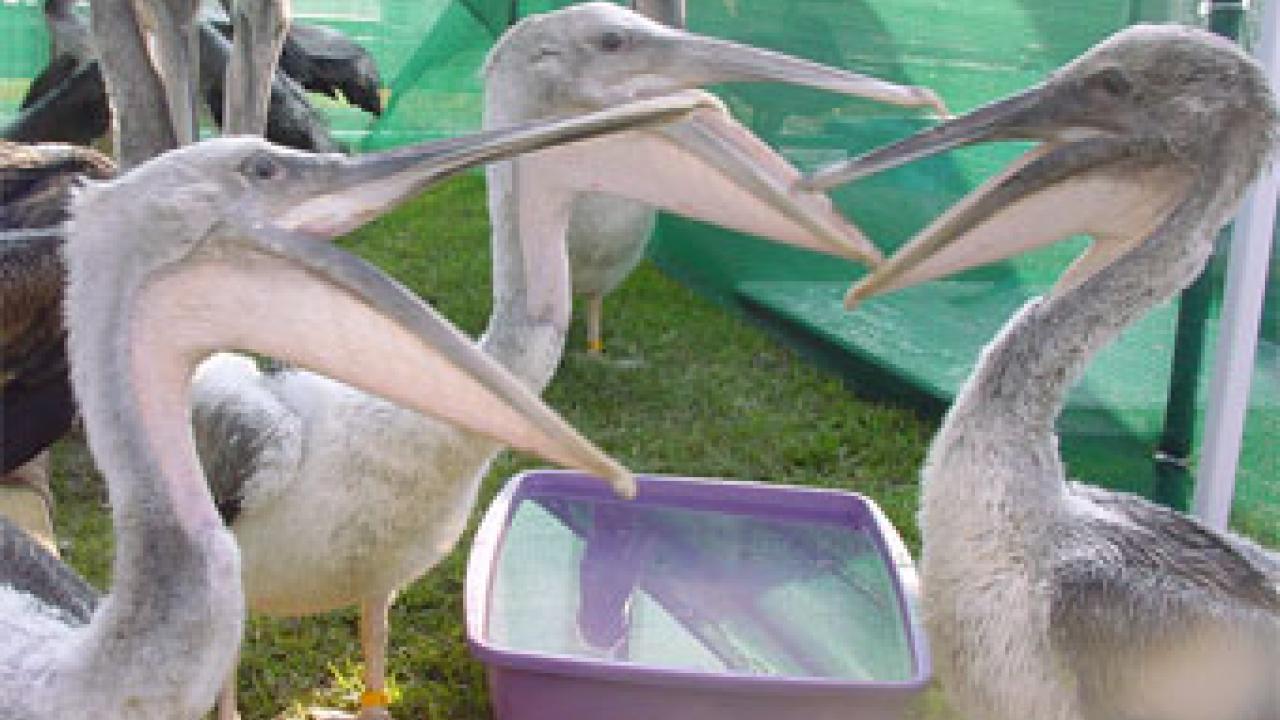UC Davis wildlife veterinarians are continuing to treat hundreds of young pelicans injured in a June 12 oil spill off the coast of Louisiana. Veterinarian Michael Ziccardi returned to campus after a week at the pelican rescue center and was replaced by veterinarian Greg Massey, who will be there for at least the next several weeks.
Ziccardi said he and Massey currently are trying to understand medical complications that some of the pelicans are experiencing. "This is something important that UC Davis brings to the table -- our ability to investigate problems that arise after the initial oil exposure," Ziccardi said.
Ziccardi traveled to the rescue center at Venice, La., on June 15 and in the next several days cared for more than 400 pelicans ages 4 to 12 weeks old. As of Thursday (June 23), 959 birds had been collected, either living or dead, and 268 were still alive at the rescue center.
The pelicans, which are so young they cannot fly yet, were helpless when roughly 560 gallons of oil spilled on Sunday, June 12, from an Amerada Hess Corp. oil platform in the Gulf of Mexico and washed over West Breton Island, where the birds were being raised by their parents. The company has said that the spill seemed to be related to the effects of tropical storm Arlene; it was discovered when crew members who had been evacuated returned to the oil platform.
Local officials called on UC Davis and three other wildlife organizations, including the International Bird Rescue Research Center, a close partner of UC Davis that is based in Cordelia, Calif.; Tri-State Bird Rescue and Research of Delaware; and Wildlife Rehabilitation and Education of Texas.
Ziccardi, Massey and Jonna Mazet, director of the UC Davis Wildlife Health Center, treat and study oiled wildlife around the world. In California, they manage a chain of coastal rescue centers and programs that are collectively called the Oiled Wildlife Care Network. The network and wildlife health center are programs of the UC Davis School of Veterinary Medicine.
The Wildlife Health Center is dedicated to the conservation of free-ranging wildlife through research and education. Its 10 years of veterinary care and scientific study of oiled birds, otters and other wildlife have established standards and practices now used worldwide.
In January, UC Davis veterinarians cared for more than 800 birds oiled off the coast of Southern California. An additional 600 birds were known to have died in that spill; Mazet estimated the actual number of deaths at more than 2,400.
Media Resources
Michael Ziccardi, Wildlife Health Center, (530) 752-4167, mhziccardi@ucdavis.edu
